Washington, DC — Today, the Board released its 2025 Statement on Supplemental Security Income (SSI). SSI is a program for people with low income and resources who either have a qualifying disability or are age 65 or older. The report focuses on SSI in United States territories.
Of the five US Territories, only the residents of the Commonwealth of the Northern Mariana Islands (2020 pop. 47,329) are eligible for SSI. Residents of Puerto Rico (2020 pop. 3,285,874), Guam (2020 pop. 153,836), and the US Virgin Islands (2020 pop. 87,146), cannot receive SSI, but those territories have alternative block grant programs established through the Social Security Act. Residents of American Samoa (2020 pop. 49,710) are not eligible for SSI or an alternative block grant.
The 2025 SSI Statement provides a history of SSI and alternative block grant programs in United States territories. It also describes current similarities and differences between SSI and the block grant programs. The Board hopes that this information will be useful to policymakers.
Access Previous SSI Statements
###
The Board’s mission is to advise the President, Congress, and Commissioner of Social Security on the Social Security and Supplemental Security Income programs. It is composed of Presidential and Congressional appointees with professional staff.
The Board held a virtual roundtable on “Supplemental Security Income (SSI) and Incarceration” on Monday, September 9, 2024. The roundtable informed the Board’s research on SSI and incarceration by presenting professionals with experience helping people navigate SSI applications. Panelists shared their experience in providing direct services to people who are or have been incarcerated, or providing training, supervision, and technical assistance to those who do so.
Panel members included:
- Ronna Cole, Deputy Assistant Secretary for Health Services, Washington State Department of Corrections
- Karen Duranceau, Project Manager, Washington State Department of Corrections
- Erica Hartwig, Staff Attorney, Community Legal Services of Philadelphia
- Terre Marshall, Director of Complex Reentry Transitions, South Carolina Department of Corrections
- Michele Murff, Director of Housing and Homeless Programs, South Carolina Department of Mental Health
- Trinh Phan, Director of State Income Security, Justice in Aging
- Reverend Ben Roberts, Associate Pastor & Executive Director of Program and Justice Ministries, Foundry United Methodist Church
- Gloria Robinson, Program Analyst, South Carolina Department of Disability Services
- Tammy Seltzer, Director of the Jail and Prison Advocacy Project (JPAP), University Legal Services Disability Rights DC
- Dazara Ware, Assistant Director, Substance Abuse and Mental Health Services Administration (SAMHSA) SOAR Technical Assistance Center
Supplemental Security Income and Incarceration Roundtable AgendaSSI and Incarceration Roundtable Panelist Bios
The purpose of this forum was to learn how applying, communicating, and receiving or resuming suspended benefits works for individuals re-entering society after incarceration. The Board hope to learn what appears to work well and where access to SSA’s services for such individuals could be improved within existing program policies and goals. The Board hopes to gather information from those who do the work, to understand the process, and perhaps learn how and what data might be discovered and gathered. The information presented at this event is for the purpose of informing the Board. The views expressed do not necessarily reflect the views of the Board or any Board member.
The Board held an event on “The Future of Mortality, Disability, and Work: Helping to Inform the Social Security Trust Fund Projections” on Friday, August 25, 2023.
Each year, the Board of Trustees reports to Congress on the current and projected financial and actuarial status of the Old-Age and Survivors Insurance (OASI) and Disability Insurance (DI) programs. The Social Security Administration’s Office of the Chief Actuary (OCACT), on behalf of the Trustees, projects future OASDI program cost and income based on assumptions about key demographic and economic variables affecting the number of people paying into and receiving benefits from these programs over time. This forum brought together OCACT in conversation with other experts to consider the implications of recent research and scientific findings on future expectations for a subset of those variables—mortality, disability, and work.
This page collects materials from the event, including a recording of the entire session. Each panel section has a brief description, a list of panelists, a video recording, and any presentation slides used. Videos are annotated by chapter.
Panel 1: Mortality
10 – 11:30 am ET
This panel discussed expectations for future mortality trends in light of issues such as COVID-19 and possible future pandemics, rising deaths from drugs, suicide, and chronic liver disease among the working-age population, and rising pediatric mortality. How long people will live to pay into and receive Social Security in the future is a key consideration for program projections.
Panelists
- Robert Anderson, PhD, Chief, Mortality Statistics Branch, National Center for Health Statistics, Centers for Disease Control and Prevention
- David M Cutler, PhD, Otto Eckstein Professor of Applied Economics, Harvard University
- Karen Glenn, FSA, EA, MAAA, Deputy Chief Actuary for Long-Range Actuarial Estimates, OCACT, SSA
- Stephen C Goss, ASA, MAAA, Chief Actuary, OCACT, SSA
- Christopher JL Murray, MD, DPhil, Director, Institute for Health Metrics and Evaluation (IHME); Professor and Chair of Health Metrics Sciences, University of Washington
- Christopher J Ruhm, PhD, Professor of Public Policy and Economics, University of Virginia
- Steven Woolf, MD, MPH, Professor and C. Kenneth and Diane Wright Distinguished Chair in Population Health and Health Equity, Virginia Commonwealth University
- Emma Tatem (moderator), Lead Policy Analyst, SSAB
OCACT-Mortality-SlidesRobert-Anderson-Mortality-SlidesDavid-Cutler-Mortality-SlidesChristopher-Murray-Mortality-SlidesChristopher-Ruhm-Mortality-SlidesSteven-Woolf-Mortality-Slides
Panel 2: Disability
11:30 am – 1 pm ET
This panel explored factors impacting technological and medical advances and changing workplace flexibilities. OCACT projects the number of people expected to receive disability benefits in the future using three key disability assumptions: incidence, death, and recovery rates. Incidence rates—the proportion of insured workers who file for and are awarded benefits each year based on SSA’s definition of disability—have fallen steeply since 2010 to levels well below expected.
Panelists
- Stephen C Goss, ASA, MAAA, Chief Actuary, OCACT, SSA
- Allen W Heinemann, PhD, Professor of Physical Medicine and Rehabilitation, Northwestern University Feinberg School of Medicine
- Christopher JL Murray, MD, DPhil, Director, IHME; Professor and Chair of Health Metric Sciences, University of Washington
- David Shaywitz, MD, PhD, VP Distinguished R&D Fellow, Data & Digital, Takeda; Lecturer, Harvard Medical School; Adjunct Fellow, American Enterprise Institute*
- Michael L Stephens, ASA, Acting Deputy Chief Actuary for Short-Range Actuarial Estimates, OCACT, SSA
- Conway Reinders (moderator), Lead Policy Analyst, SSAB
*Personal capacity; affiliations for identification purposes only.
OCACT-Disability-SlidesAllen-Heinemann-Disability-SlidesChristopher-Murray-Disability-SlidesDavid-Shaywitz-Disability-Slides
Panel 3: Work
2 – 3:30 pm ET
This panel discussed expectations about the changing nature of work and why it is particularly uncertain. People qualify for OASI and DI by contributing to the Social Security Trust Funds through taxes on their earnings from covered jobs. What work will look like is critical to understanding program contributions and costs.
Panelists
- Karen Glenn, FSA, EA, MAAA, Deputy Chief Actuary for Long-Range Actuarial Estimates, OCACT, SSA
- Stephen C Goss, ASA, MAAA, Chief Actuary, OCACT, SSA
- Stipica Mudrazija, PhD, Assistant Professor of Health Systems and Population Health, University of Washington
- Steven W Popper, PhD, Senior Economist and Professor, Pardee RAND Graduate School
- Shelly Steward, PhD, Director, Future of Work Initiative, Economic Opportunities Program, Aspen Institute
- Emily Roessel (moderator), Senior Policy Researcher, SSAB
Speakers
 Robert Anderson, PhD, has served as Chief of the Mortality Statistics Branch at CDC’s National Center for Health Statistics since 2004. He oversees and is responsible for the production, analysis and dissemination of national mortality statistics and has worked on issues related to disease classification, improvements in data quality (especially with regard to cause of death reporting), and quantifying the effect of the COVID-19 pandemic on mortality in the United States.
Robert Anderson, PhD, has served as Chief of the Mortality Statistics Branch at CDC’s National Center for Health Statistics since 2004. He oversees and is responsible for the production, analysis and dissemination of national mortality statistics and has worked on issues related to disease classification, improvements in data quality (especially with regard to cause of death reporting), and quantifying the effect of the COVID-19 pandemic on mortality in the United States.

David M Cutler, PhD, is the Otto Eckstein Professor of Applied Economics in the Department of Economics at Harvard University and holds secondary appointments at the Kennedy School of Government and the School of Public Health. His expertise is in health and public economics and economic demography.
 Stephen C Goss, ASA, MAAA, has been Social Security’s Chief Actuary since 2001. He has worked in areas related to health and long-term care insurance and pension, disability, and survivor protection.
Stephen C Goss, ASA, MAAA, has been Social Security’s Chief Actuary since 2001. He has worked in areas related to health and long-term care insurance and pension, disability, and survivor protection.
 Karen Glenn, FSA, EA, MAAA, is SSA’s Deputy Chief Actuary for Long-Range Actuarial Estimates. She is responsible for the demographic and economic assumptions that underlie the 75-year estimates of the cost of the Social Security program.
Karen Glenn, FSA, EA, MAAA, is SSA’s Deputy Chief Actuary for Long-Range Actuarial Estimates. She is responsible for the demographic and economic assumptions that underlie the 75-year estimates of the cost of the Social Security program.
 Allen W Heinemann, PhD, is Director of the Center for Rehabilitation Outcomes Research at the Shirley Ryan AbilityLab and Professor of Physical Medicine and Rehabilitation at Northwestern University’s Feinberg School of Medicine. His research interests focus on health services research, psychosocial aspects of rehabilitation including substance abuse, and measurement issues in rehabilitation.
Allen W Heinemann, PhD, is Director of the Center for Rehabilitation Outcomes Research at the Shirley Ryan AbilityLab and Professor of Physical Medicine and Rehabilitation at Northwestern University’s Feinberg School of Medicine. His research interests focus on health services research, psychosocial aspects of rehabilitation including substance abuse, and measurement issues in rehabilitation.
 Stipica Mudrazija, PhD, is Assistant Professor in the Department of Health Systems and Population Health at the University of Washington and Nonresident Fellow at the Urban Institute. He studies issues related to population aging, intergenerational support, and the health and well-being of older adults in the United States and internationally.
Stipica Mudrazija, PhD, is Assistant Professor in the Department of Health Systems and Population Health at the University of Washington and Nonresident Fellow at the Urban Institute. He studies issues related to population aging, intergenerational support, and the health and well-being of older adults in the United States and internationally.
 Christopher JL Murray, MD, DPhil, is Director of the Institute for Health Metrics and Evaluation and Professor and Chair of Health Metrics Sciences at the University of Washington. He is a physician and health economist who leads the Global Burden of Disease, Injuries, and Risk Factors enterprise, which quantifies the comparative magnitude of health loss due to diseases, injuries, and risk factors by age, sex, and geography over time.
Christopher JL Murray, MD, DPhil, is Director of the Institute for Health Metrics and Evaluation and Professor and Chair of Health Metrics Sciences at the University of Washington. He is a physician and health economist who leads the Global Burden of Disease, Injuries, and Risk Factors enterprise, which quantifies the comparative magnitude of health loss due to diseases, injuries, and risk factors by age, sex, and geography over time.
 Steven W Popper, PhD, is Senior Economist at the RAND Corporation and Professor at the Pardee RAND Graduate School. He works on decision-making under deep uncertainty, science and technology policy, strategic decision-making foresight and future studies, and security planning.
Steven W Popper, PhD, is Senior Economist at the RAND Corporation and Professor at the Pardee RAND Graduate School. He works on decision-making under deep uncertainty, science and technology policy, strategic decision-making foresight and future studies, and security planning.
 Christopher J Ruhm, PhD, is Professor of Public Policy and Economics at the University of Virginia. His research has focused on excess deaths due to the COVID-19 pandemic, drug poisoning deaths in the United States, the relationship between macroeconomic conditions and health, the determinants of health and risky behaviors, and the causes and consequences of alcohol and illegal drug policies.
Christopher J Ruhm, PhD, is Professor of Public Policy and Economics at the University of Virginia. His research has focused on excess deaths due to the COVID-19 pandemic, drug poisoning deaths in the United States, the relationship between macroeconomic conditions and health, the determinants of health and risky behaviors, and the causes and consequences of alcohol and illegal drug policies.
 David Shaywitz, MD, PhD, is participating in his personal capacity but holds the roles of VP-Distinguished R&D Fellow at Takeda, Lecturer at Harvard Medical School, and Adjunct Fellow at the American Enterprise Institute. A physician-scientist by training, he has focused his career on biomedical innovation, particularly the opportunities and challenges associated with implementing emerging technologies.
David Shaywitz, MD, PhD, is participating in his personal capacity but holds the roles of VP-Distinguished R&D Fellow at Takeda, Lecturer at Harvard Medical School, and Adjunct Fellow at the American Enterprise Institute. A physician-scientist by training, he has focused his career on biomedical innovation, particularly the opportunities and challenges associated with implementing emerging technologies.
 Michael L Stephens, ASA, is the Acting Deputy Chief Actuary for Short-Range Actuarial Estimates in the Office of the Chief Actuary at the Social Security Administration. He leads the office’s work on developing 10-year projections of the numbers of beneficiaries, total benefits, and the actuarial status of the trust funds for the Social Security program, as well as 25-year projections of recipients and total payments for the Supplemental Security Income program.
Michael L Stephens, ASA, is the Acting Deputy Chief Actuary for Short-Range Actuarial Estimates in the Office of the Chief Actuary at the Social Security Administration. He leads the office’s work on developing 10-year projections of the numbers of beneficiaries, total benefits, and the actuarial status of the trust funds for the Social Security program, as well as 25-year projections of recipients and total payments for the Supplemental Security Income program.
 Shelly Steward, PhD, serves as Director of the Future of Work Initiative, part of the Aspen Institute’s Economic Opportunities Program. A sociologist by training, she has studied the changing nature of work and is an expert on nonstandard work arrangements and the gig economy.
Shelly Steward, PhD, serves as Director of the Future of Work Initiative, part of the Aspen Institute’s Economic Opportunities Program. A sociologist by training, she has studied the changing nature of work and is an expert on nonstandard work arrangements and the gig economy.
 Steven Woolf, MD, MPH, is Director Emeritus of the Center on Society and Health at Virginia Commonwealth University, where he is Professor of Family Medicine and Population Health and holds the C. Kenneth and Diane Wright Distinguished Chair in Population Health and Health Equity. Woolf is also a clinical epidemiologist trained in preventive medicine and public health; he is board certified in family medicine and in preventive medicine and public health.
Steven Woolf, MD, MPH, is Director Emeritus of the Center on Society and Health at Virginia Commonwealth University, where he is Professor of Family Medicine and Population Health and holds the C. Kenneth and Diane Wright Distinguished Chair in Population Health and Health Equity. Woolf is also a clinical epidemiologist trained in preventive medicine and public health; he is board certified in family medicine and in preventive medicine and public health.
Social Security Advisory Board Bylaws
Last Update: January 31, 2020
ARTICLE 1
Creation and Authority
The Social Security Advisory Board (referred to collectively herein as the “Board”) is a bipartisan, independent federal government agency established in 1994 by Section 703 of the Social Security Act to advise the President, the Congress, and the Commissioner of Social Security on matters of policy and administration of the Old-Age, Survivors, and Disability Insurance and the Supplemental Security Income programs.
ARTICLE 2
Board Compensation and Duties
Section 1 – Composition
The Board is composed of 7 members appointed to 6-year terms, as follows: 3 appointed by the President (no more than 2 from the same political party), by and with the advice and consent of the Senate; 2 each (no more than 1 from the same political party) by the Speaker of the House (in consultation with the Chair and Ranking Minority Member of the Committee on Ways and Means) and by the President pro tempore of the Senate (in consultation with the Chair and Ranking Minority Member of the Committee on Finance).
Each member of the Board serves for a term of 6 years, except that a member appointed to a term of office after the commencement of such term may serve under such appointment only for the remainder of such term.
Section 2 – Standards of Conduct
When carrying out the duties of the office, a member of the Board is performing work on behalf of the U. S. government and is not representing any private organization or institution with which the member may otherwise be affiliated.
Board members shall adhere to the basic obligations of public service set forth in 5 CFR § 2635.101 including the placing of loyalty to the Constitution, laws and ethical principles above private gain. Board members shall endeavor to avoid any actions creating the appearance that they are violating that law, or the ethical standards set forth in that regulation.
Board members shall maintain the confidentiality of information and materials as required by law.
ARTICLE 3
The Board Chair
The President designates a member of the Board to serve as Chair for a term of 4 years, coincident with the term of the President, or until the designation of a successor.
Section 1 – Duties of the Chair
- Call all regular and special meetings of the Board, in consultation with Board Members;
- Preside over all Board meetings and calls and conduct all meetings in accordance with these Bylaws;
- Work with Board members and the Staff Director to implement an annual work plan established by the Board;
- Work with Board members and the Staff Director to establish and monitor priorities that guide the Board’s work;
- Conduct an annual performance review of the Staff Director, which shall be approved by the Board;
- Facilitate a Board vote to decide when a project will be undertaken, delayed or set aside before completion;
- Communicate regularly with the Staff Director and Board Members to remain conversant with all significant organizational activities and decisions;
- Establish Board member assignments and Work Groups in consultation with affected Board Members;
- Designate another Board Member to chair a Board meeting or call when the Chair must be absent.
Section 2 – First Assistant to the Chair
In the event that the Chair of the Board dies, resigns, or is otherwise unable to perform the functions and duties of the office (including such inability as a result of the expiration of the Chair’s term of office as a member of the Board), such functions and duties shall be temporarily exercised in an acting capacity by the First Assistant to the Chair. The First Assistant to the Chair shall be a Board Member who is of the same party as the then President of the United States and who has had the longest period of service on the Board.
ARTICLE 4
Working Groups
The Chair may establish Working Groups to conduct studies on subjects that are of interest to the Board. Working Groups will generally be bipartisan and will be comprised of those members who choose to participate. They will serve in an advisory capacity to the full Board. Board members may participate the activities of Working Groups as they choose.
ARTICLE 5
Meetings
Section 1 – Place and Frequency
Federal law requires the Board to meet not less than 4 times each year. The purpose of the meetings is to consider a specific agenda of issues, as determined by the Chair in consultation with the Staff Director and other members of the Board. Meetings are held in the Board’s conference room unless otherwise determined by the Chair.
Section 2 – Notice, Agenda and Attendance
Board members will receive written notice of meetings not less than 7 days in advance of the meeting. The notice shall contain a summary of the agenda and the place, date, and time of the meeting. Notice of public meetings shall be posted on the Board’s home page in order to inform the public of Board proceedings. In exceptional circumstances, the Board may give less than 7 days prior notice of meetings to Board Members and the public, provided that the reasons for doing so are included in the meeting notice. The Staff Director shall both propose agenda items and solicit Board Member suggestions for agenda topics.
Board meetings shall generally be open to the public. Meetings not subject to this requirement include: meetings of the Board and the Commissioner of Social Security or one or more other Federal official(s) for the purpose of exchanging facts or information and hearing the views of individual attendees; meetings of the Board or of two or more members that are convened solely to gather information or conduct research on behalf of the Board, to analyze relevant issues and facts, or to draft proposed position papers or reports for consideration by the Board; and meetings of the Board for the purpose of attending to Board administrative arrangements.
Interested persons may be permitted to appear before the Board to provide or request information. Individuals who wish to appear before the Board shall submit their request to the Board in writing and sufficiently in advance of the desired meeting so that their request may be considered. Reasonable accommodations will be provided for attendees upon request, as appropriate.
Section 3 – Quorum and Transition of Business
As required by Section 703(g)(2) of the Social Security Act, four members of the Board (not more than 3 of whom may be of the same political party) shall constitute a quorum for purposes of conducting business.
Each member shall have one vote. The votes of a majority of the Board who are present and voting at a meeting shall be necessary for adoption by the Board of any action. Voting shall be by oral vote unless on any matter a member requests voting by written ballot.
Any Board member may propose, and the Board may vote to take up items not on the proposed agenda.
Section 4 – Voting by Absent Members
A member of the Board who is absent from a meeting of the Board may vote at the meeting if the member provides a proxy to the Chair prior to or at the time of the meeting.
A member who is absent from a meeting and has not provided a proxy to the Chair may give consent to, or register dissent from, any action adopted by the Board at the meeting if the member provides notice of consent or dissent with the Chair within five days before or after the meeting.
Section 5 – Minutes of Meetings
The Chair shall ensure that minutes of each Board meeting are recorded. Minutes of open meetings shall include: time, date, and place; a list of the persons present; in the event of a large public meeting, an estimated number of other members of the public present; a description of each matter discussed and the resolution, if any, made by the Board; and copies of each report or other document received or approved by the Board. The Chair shall certify to the accuracy of all minutes of meetings, following approval by the Board. The Board shall make available to any person at actual cost of duplication and delivery, copies of Board minutes.
ARTICLE 6
Action Between Meetings
Section 1 – Action Pursuant to Direction at a Meeting
The Board may vote on a proposed action without a meeting if the Chair determines that a matter must be considered before the next regularly scheduled meeting. If the Chair so determines, the Chair shall transmit information relating to the proposed action to the members, and a call for a vote thereon. A proposed action that is adopted by the votes of a majority of Board Members without a meeting shall become effective when all votes are received from serving members or thirty days from the date of request for a vote, whichever is earlier.
SECTION 2 – VOTING ON BYLAWS LIMITED
The procedure described in this Article may not be used with respect to actions proposed under Article 10 of these Bylaws, “Amendment of Bylaws”.
ARTICLE 7
Reports
Section 1 – Preparation
The Board shall institute the development of content such as reports, studies and briefs for delivery to the President, the Congress, and the Commissioner on subjects that are related to the functions of the Board as specified in Section 703(b) of the Social Security Act. The development of content shall be instituted by the vote of a majority of the Board that includes at least one appointed member from each political party.
Section 2 – Adoption
Following a preliminary review by the Board that attempts to resolve any issues that members may have about proposed content, the Board shall vote to decide whether to adopt the content for delivery to the President, the Congress and the Commissioner. Unless the Board has agreed that the adoption of proposed content must be by consensus, content may be adopted by vote of a majority of the Board that includes at least one appointed member from each political party. Content will be made available to the public upon adoption and delivery to officials by the Board.
Section 3 – Minority and Supplemental Views
Any member of the Board may submit minority or supplemental views to the Chair of the Board within 7 days before and following a vote adopting any content. Timely submitted views shall be printed and otherwise made available with the content.
Section 4 – Independent Panels
The Board may institute independent panels of experts to study and report on items of interest to the Board. A panel is deemed “independent” if its product is considered to be the work of the panel which shall not be altered by the Board. In developing a governing charter for an independent panel, the Board may stipulate: 1) whether the panel is expected to produce a written report and when, before public release, an advance copy of that report is to be provided to the Board; and 2) whether the report shall include language stating that the report reflects only the views of the independent panel and is not endorsed by the Board.
ARTICLE 8
Public Accountability
The Board shall prepare annual reports on its budget and on the activities of the Board, which shall be made available to the public.
ARTICLE 9
Staff Director
The Board shall appoint a Staff Director who shall serve as the chief operating officer of the Board and who shall have the responsibility of carrying out the day-to-day operations of the Board. The Chair, in consultation with the Board, will annually review the Staff Director job description and, subject to final Board approval, annually evaluate the performance of the Staff Director.
ARTICLE 10
Amendment of Bylaws
The Board shall review these Bylaws upon Board member request. The Bylaws may be repealed, altered, or amended only by consent of all duly appointed members of the Board then serving. A copy of any proposed amendment shall be filed with the Chair and shall be sent to each member of the Board with the notice announcing the meeting at which the proposed amendment will be considered. Adoption of a proposed change shall be deemed to waive any notice required by this Article.
SUMMARY: On Thursday, September 24, the Social Security Advisory Board held a virtual policy forum entitled Representative Payees: Opportunities to Improve Service Delivery. The forum showcased an independent, Board-commissioned study by researchers from the Virginia Tech Center on Gerontology and the American Bar Association Commission on Law and Aging. Following the report presentation, the forum included three panels covering capability determinations, the selection process, training, oversight, and the need for ongoing research and evaluation. The final panel also discussed the public service implications of a more individualized, supported decision-making model, and how to get there.
Key Documents
Forum Agenda
9:45 am Webinar Opening
10:00 am Opening Remarks
Kim Hildred, Chair, Social Security Advisory Board
10:10 am Presentation of Findings: “Selection Processes for SSA Payees of Adults”
The independent, Board-commissioned researchers present their findings on the selection process for the appointment of payees, capability determinations, and the need for enhanced training.
Panelists:
Laura P. Sands, Professor of Human Development and Family Science, Virginia Tech
Pamela B. Teaster, Director, Virginia Tech Center for Gerontology; Professor of Human Development and Family Science, Virginia Tech
Erica F. Wood, Assistant Director (retired), American Bar Association Commission on Law and Aging
Discussant:
Henry J. Aaron, Member, Social Security Advisory Board
11:00 am Initial Steps: Determining Financial Capability and Selecting the Best Payee
Panelists discuss variation in the current process for determining capability and selecting payees, how the Strengthening Protections for Social Security Beneficiaries Act of 2018 (Protections Act) changed it, how COVID has affected it, and where it differs from other substitute decision-maker programs. Panelists will also discuss where additional study is needed and what types of data the agency should collect if it’s not already doing so.
Moderator:
Bob Joondeph, Member, Social Security Advisory Board
Panelists:
Michael Collins, Faculty Director, UW-Madison Center for Financial Security, and Fetzer Family Chair on Consumer and Personal Finance, University of Wisconsin – Madison
Elizabeth H. Curda, Director, Education, Workforce, and Income Security, Government Accountability Office
Kate Lang, Senior Staff Attorney, Justice in Aging
Linda Rutland, Assistant Director, Pension and Fiduciary Service, Veterans Benefits Administration, Department of Veterans Affairs
Laura P. Sands, Virginia Tech
Pamela B. Teaster, Virginia Tech
Erica F. Wood, American Bar Association (retired)
Technical experts:
Christopher Detzler, Executive Officer, National Council of Social Security Management Associations; District Manager, Vancouver, Washington Field Office, Social Security Administration.
David Lescarini, President, National Council of Social Security Management Associations; District Manager, McMinnville, Tennessee Field Office, Social Security Administration
12:00 pm Lunch Break
12:30 pm Keynote Speech
The Honorable Kristin Booth Glen, Project Director, Supported Decision-Making New York and Dean Emerita, City University of New York School of Law discusses supported decision-making, human rights, and legal capacity for people with intellectual and developmental disabilities.
1:00 pm Program Oversight: Monitoring Payees and Reevaluating Agency Payee Decisions
The independent researchers briefly provide findings on the ongoing agency evaluation of payee decisions, including capability and payee selection. Panelists discuss the oversight process at Social Security: how the Protections Act changed it, how COVID has affected it, and whether it incorporates similar efforts from other substitute decision-maker programs. Panelists also discuss where opportunities exist to collect new data or share information with other entities.
Moderator:
Henry J. Aaron , Member, Social Security Advisory Board
Panelists:
Reeve T. Bull, Research Director, Administrative Conference of the United States
Curtis Decker, Executive Director, National Disability Rights Network
Ed Doonan, Chairman of the Board, National Association of Organizational Representative Payees; Government Affairs Liaison, Benefits Management Corporation
Kate Lang, Justice in Aging
Kathryn Larin, Director, Education, Workforce, and Income Security, Government Accountability Office
Technical Experts:
Christopher Detzler, National Council of Social Security Management Associations
David Lescarini, National Council of Social Security Management Associations
Discussants:
Pamela B. Teaster, Virginia Tech
Erica F. Wood, American Bar Association (retired)
2:30 pm Break
2:45 pm Envisioning the Future: Payees in a Supported Decision- Making Model
Panelists address whether continuing to focus on improving Social Security’s program is the right approach or whether the government should move into more of an integrated supported decision-making model, which is currently being tested in different states and other countries.
Moderator:
Bob Joondeph, Member, Social Security Advisory Board
Panelists:
Kenneth S. Apfel, Professor of the Practice, University of Maryland School of Public Policy; former Commissioner of Social Security, Social Security Administration
The Honorable Kristin Booth Glen, Supported Decision-Making New York; City University of New York School of Law
Louis D. Enoff, former Acting Commissioner of Social Security, Social Security Administration (retired)
Ari Ne’eman, PhD Candidate in Health Policy, Harvard University
Morgan K. Whitlatch, Legal Director, Quality Trust for Individuals with Disabilities; Lead Project Manager, National Resource Center for Supported Decision-Making
Hilary Dalin, Director, Office of Elder Justice and Adult Protective Services, Administration for Community Living, Department of Health and Human Services
Technical Experts:
Christopher Detzler, National Council of Social Security Management Associations
David Lescarini, National Council of Social Security Management Associations
Discussants:
Henry J. Aaron, Member, Social Security Advisory Board
Pamela B. Teaster, Virginia Tech
Erica F. Wood, American Bar Association (retired)
4:15 pm Closing Remarks
Kim Hildred, Chair, Social Security Advisory Board
4:30 pm Webinar Conclusion
Previous Board Work on Representative Payees
This brief summarizes recent developments in Social Security’s representative payee program, including the passage of the Strengthening Protections for Social Security Beneficiaries Act of 2018, concerns addressed at the Board’s September 2018 policy forum, the Board’s January 2019 Federal Register Comment, and ongoing Board work. Read More→
This Comment is provided in reference to: Notice and Request for Comments on “Review and Reassessment of the SSA’s Representative Payee Selection and Replacement Policies, 83 Fed. Reg. 64422 (December 14, 2018), Docket No. SSA-2018-0048. Read More→
This Social Security Advisory Board forum brought policymakers, practitioners, and researchers together for a day-long forum to explore how the Social Security Administration can study and improve the representative payee selection process. This forum continued SSAB’s longstanding effort to support and improve a vital government program serving approximately eight million people who need assistance in managing benefits provided by the SSA. Read More→
Report: Improving Social Security’s Representative Payee Program, January 2018
This paper summarizes the board’s recommendations for both immediate changes by SSA and a plan for broader government-wide action. The board found broad interest in improving SSA’s rep payee program and reached bipartisan agreement on how to do so. Read More→
Representative Payee Program, March 27, 2017
The Social Security Advisory Board hosted a public forum to discuss the Social Security Administration’s representative payee program. The day’s discussion included the process of determining capacity, best practices, collaborative efforts, new approaches from the front lines, necessary oversight, program evaluation, and preparing for the future. Read More→
Issue Brief: Representative Payees: A Call to Action, March 2016
The Social Security Advisory Board calls for Congress, the Social Security Administration (SSA), and interested stakeholders to reexamine the representative payee (“payee”) program. SSA’s procedures for appointing, selecting, training, and monitoring payees should be reviewed, and a plan should be developed for identifying beneficiaries with declining financial capability. Read More→
This paper looks at SSA’s statutory authority, the selection process for rep payees and the different responsibilities of rep payees in SSI and in SSA’s other programs. It also provides an overview of the make-up of the current SSI rep payee program for adult beneficiaries. Although there are troubling issues in the SSI children’s program, touched on in the 2014 SSI statement, this paper focuses on adult beneficiaries. Finally, this report explores a growing movement to replace programs that “care for” individuals with those that tailor support on a case-by-case basis and help beneficiaries retain as much autonomy as possible. Read More→
A major section of the Board’s 2014 SSI Statement addresses the role of representative payees for child SSI recipients in foster care and the process in which those rep payees are appointed. Read More→
In this Issue Brief, we examine ways in which SSA can improve its management of the Representative Payee Program. For more than 70 years, the Social Security Administration has been issuing checks to representative payees who manage the money for beneficiaries who are not able to manage their own benefits. More than five million Old-age, Survivors, and Disability Insurance beneficiaries and nearly three million Supplemental Security Income beneficiaries have payees. SSA has taken steps to deal with the risk that payees will use the benefits for their own purposes. Read More→
One section of the Board’s 2002 SSI Statement focuses on accountability of representative payees. Read More→
Register now for the online forum
Thursday, September 24, 10 am – 4:30 pm
Please join the Social Security Advisory Board (Board) on Thursday, September 24, for a virtual policy forum on Representative Payees: Opportunities to Improve Service Delivery. The forum will showcase an independent, Board-commissioned study by researchers from the Virginia Tech Center on Gerontology and the American Bar Association Commission on Law and Aging.
Following the presentation of the report, the Board will moderate three panels. Discussions will cover capability determinations, the selection process, training, oversight, and the need for ongoing research and evaluation. The final panel will consider the public service implications of a more individualized, supported decision-making model, and how to get there.
Download Forum Participant Bio-sketches
To request a reasonable accommodation,
please contact us at events@ssab.gov
at least three business days in advance of the meeting.
Board-Commissioned Research Study
Selection Processes for Social Security Administration Representative Payees of Adults
by
Pamela Teaster
Director, Virginia Tech Center for Gerontology
Professor of Human Development and Family Science, Virginia Tech
Erica Wood
Assistant Director (retired), Commission on Law and Aging
American Bar Association
Laura Sands
Professor of Human Development and Family Science
Virginia Tech
Read the Executive Summary
Read the Full Report
Forum Agenda
9:45 am Webinar Opens
10:00 am Opening Remarks
Kim Hildred, Chair, Social Security Advisory Board
10:10 am Presentation of Findings: “Selection Processes for SSA Payees of Adults”
The independent, Board-commissioned researchers will present their findings on the selection process for the appointment of payees, capability determinations, and the need for enhanced training.
Panelists:
Laura P. Sands, Professor of Human Development and Family Science, Virginia Tech
Pamela B. Teaster, Director, Virginia Tech Center for Gerontology; Professor of Human Development and Family Science, Virginia Tech
Erica F. Wood, Assistant Director (retired), American Bar Association Commission on Law and Aging
Discussant:
Henry J. Aaron, Member, Social Security Advisory Board
11:00 am Initial Steps: Determining Financial Capability and Selecting the Best Payee
Panelists will discuss variation in the current process for determining capability and selecting payees, how the Strengthening Protections for Social Security Beneficiaries Act of 2018 (Protections Act) changed it, how COVID has affected it, and where it differs from other substitute decision-maker programs. Panelists will also discuss where additional study is needed and what types of data the agency should collect if it’s not already doing so.
Moderator:
Bob Joondeph, Member, Social Security Advisory Board
Panelists:
Michael Collins, Faculty Director, UW-Madison Center for Financial Security, and Fetzer Family Chair on Consumer and Personal Finance, University of Wisconsin – Madison
Elizabeth H. Curda, Director, Education, Workforce, and Income Security, Government Accountability Office
Kate Lang, Senior Staff Attorney, Justice in Aging
Linda Rutland, Assistant Director, Pension and Fiduciary Service, Veterans Benefits Administration, Department of Veterans Affairs
Laura P. Sands, Virginia Tech
Pamela B. Teaster, Virginia Tech
Erica F. Wood, American Bar Association (retired)
Technical experts:
Christopher Detzler, Executive Officer, National Council of Social Security Management Associations; District Manager, Vancouver, Washington Field Office, Social Security Administration.
David Lescarini, President, National Council of Social Security Management Associations; District Manager, McMinnville, Tennessee Field Office, Social Security Administration
12:00 pm Lunch Break
12:30 pm Keynote Speech
The Honorable Kristin Booth Glen, Project Director, Supported Decision-Making New York and Dean Emerita, City University of New York School of Law will discuss supported decision-making, human rights, and legal capacity for people with intellectual and developmental disabilities.
1:00 pm Program Oversight: Monitoring Payees and Reevaluating Agency Payee Decisions
The independent researchers will briefly provide findings on the ongoing agency evaluation of payee decisions, including capability and payee selection. Panelists will discuss the oversight process at Social Security: how the Protections Act changed it, how COVID has affected it, and whether it incorporates similar efforts from other substitute decision-maker programs. Panelists will also discuss where opportunities exist to collect new data or share information with other entities.
Moderator:
Henry J. Aaron , Member, Social Security Advisory Board
Panelists:
Reeve T. Bull, Research Director, Administrative Conference of the United States
Curtis Decker, Executive Director, National Disability Rights Network
Ed Doonan, Chairman of the Board, National Association of Organizational Representative Payees; Government Affairs Liaison, Benefits Management Corporation
Kate Lang, Justice in Aging
Kathryn Larin, Director, Education, Workforce, and Income Security, Government Accountability Office
Technical Experts:
Christopher Detzler, National Council of Social Security Management Associations
David Lescarini, National Council of Social Security Management Associations
Discussants:
Pamela B. Teaster, Virginia Tech
Erica F. Wood, American Bar Association (retired)
2:30 pm Break
2:45 pm Envisioning the Future: Payees in a Supported Decision- Making Model
Panelists will address whether continuing to focus on improving Social Security’s program is the right approach or whether the government should move into more of an integrated supported decision-making model, which is currently being tested in different states and other countries.
Moderator:
Bob Joondeph, Member, Social Security Advisory Board
Panelists:
Kenneth S. Apfel, Professor of the Practice, University of Maryland School of Public Policy; former Commissioner of Social Security, Social Security Administration
The Honorable Kristin Booth Glen, Supported Decision-Making New York; City University of New York School of Law
Louis D. Enoff, former Acting Commissioner of Social Security, Social Security Administration (retired)
Ari Ne’eman, PhD Candidate in Health Policy, Harvard University
Morgan K. Whitlatch, Legal Director, Quality Trust for Individuals with Disabilities; Lead Project Manager, National Resource Center for Supported Decision-Making
Hilary Dalin, Director, Office of Elder Justice and Adult Protective Services, Administration for Community Living, Department of Health and Human Services
Technical Experts:
Christopher Detzler, National Council of Social Security Management Associations
David Lescarini, National Council of Social Security Management Associations
Discussants:
Henry J. Aaron, Member, Social Security Advisory Board
Pamela B. Teaster, Virginia Tech
Erica F. Wood, American Bar Association (retired)
4:15 pm Closing Remarks
Kim Hildred, Chair, Social Security Advisory Board
4:30 pm Webinar Concludes
Previous Board Work on Representative Payees
Issue Brief: Recent Developments in the Social Security Administration’s Representative Payee Program, June 2019
This brief summarizes recent developments in Social Security’s representative payee program, including the passage of the Strengthening Protections for Social Security Beneficiaries Act of 2018, concerns addressed at the Board’s September 2018 policy forum, the Board’s January 2019 Federal Register Comment, and ongoing Board work. Read More→
Federal Register Comment on SSA’s Representative Payee Selection and Replacement Policies, January 2019
This Comment is provided in reference to: Notice and Request for Comments on “Review and Reassessment of the SSA’s Representative Payee Selection and Replacement Policies, 83 Fed. Reg. 64422 (December 14, 2018), Docket No. SSA-2018-0048. Read More→
Public Forum: Moving Forward – Implementing Changes in the Representative Payee Program, September 7, 2018
This Social Security Advisory Board forum brought policymakers, practitioners and researchers together for a day-long forum to explore how the Social Security Administration’s can study and improve the representative payee selection process. This forum continued SSAB’s longstanding effort to support and improve a vital government program serving approximately eight million people who need assistance in managing benefits provided by the SSA. Read More→
Report: Improving Social Security’s Representative Payee Program, January 2018
This paper summarizes the board’s recommendations for both immediate changes by SSA and a plan for broader government-wide action. The board found broad interest in improving SSA’s rep payee program and reached bipartisan agreement on how to do so. Read More→
Representative Payee Program, March 27, 2017
The Social Security Advisory Board hosted a public forum to discuss the Social Security Administration’s representative payee program. The day’s discussion included the process of determining capacity, best practices, collaborative efforts and new approaches from the front lines, necessary oversight, program evaluation and preparing for the future. Read More→
Issue Brief: Representative Payees: A Call to Action, March 2016
The Social Security Advisory Board calls for Congress, the Social Security Administration (SSA), and interested stakeholders to reexamine the representative payee (“payee”) program. SSA’s procedures for appointing, selecting, training, and monitoring payees should be reviewed, and a plan should be developed for identifying beneficiaries with declining financial capability. Read More→
SSI Statement, August 2016
This paper looks at SSA’s statutory authority, the selection process for rep payees and the different responsibilities of rep payees in SSI and in SSA’s other programs. It also provides an overview of the make-up of the current SSI rep payee program for adult beneficiaries. Although there are troubling issues in the SSI children’s program, touched on in the 2014 SSI statement, this paper focuses on adult beneficiaries. Finally, this report explores a growing movement to replace programs that “care for” individuals with those which tailor support on a case-by-case basis and help beneficiaries retain as much autonomy as possible. Read More→
SSI Statement, August 2014
A major section of the Board’s 2014 SSI Statement addresses the role of representative payees for child SSI recipients in foster care and the process in which those rep payees are appointed. Read More→
Issue Brief: Disability Programs in the 21st Century-The Representative Payee Program, September 2010
In this Issue Brief we examine ways in which SSA can improve its management of the Representative Payee Program. For more than 70 years, the Social Security Administration has been issuing checks to representative payees who manage the money for beneficiaries who are not able to manage their own benefits. More than five million Old-age, Survivors, and Disability Insurance beneficiaries and nearly three million Supplemental Security Income beneficiaries have payees. SSA has taken steps to deal with the risk that payees will use the benefits for their own purposes. Read More→
SSI Statement, May 2002
One section of the Board’s 2002 SSI Statement focuses on accountability of representative payees. Read More→
Authorizing Statute of the Board
PUBLIC LAW 103-296, as Amended
SEC. 103. SOCIAL SECURITY ADVISORY BOARD.
Section 703 of the Social Security Act (42 U.S.C. 903) is amended to read as follows:
SOCIAL SECURITY ADVISORY BOARD
Establishment of Board
SEC. 703. [42 U.S.C. 903] (a) There shall be established a Social Security Advisory Board (in this section referred to as the ‘Board’).
Functions of the Board
(b) On and after the date the Commissioner takes office, the Board shall advise the Commissioner on policies related to the old-age, survivors, and disability insurance program under title II and the supplemental security income program under title XVI[1]. Specific functions of the Board shall include–
(1) analyzing the Nation’s retirement and disability systems and making recommendations with respect to how the old-age, survivors, and disability insurance program and the supplemental security income program, supported by other public and private systems, can most effectively assure economic security;
(2) studying and making recommendations relating to the coordination of programs that provide health security with programs described in paragraph (1);
(3) making recommendations to the President and to the Congress with respect to policies that will ensure the solvency of the old-age, survivors, and disability insurance program, both in the short-term and the long-term;
(4) making recommendations with respect to the quality of service that the Administration provides to the public;
(5) making recommendations with respect to policies and regulations regarding the old-age, survivors, and disability insurance program and the supplemental security income program;
(6) increasing public understanding of the social security system;
(7) making recommendations with respect to a long-range research and program evaluation plan for the Administration;
(8) reviewing and assessing any major studies of social security as may come to the attention of the Board; and
(9) making recommendations with respect to such other matters as the Board determines to be appropriate.
Structure and Membership of the Board
(c)(1) The Board shall be composed of 7 members who shall be appointed as follows:
(A) 3 members shall be appointed by the President, by and with the advice and consent of the Senate. Not more than 2 of such members shall be from the same political party.
(B) 2 members (each member from a different political party) shall be appointed by the President pro tempore of the Senate with the advice of the Chairman and the Ranking Minority Member of the Senate Committee on Finance.
(C) 2 members (each member from a different political party) shall be appointed by the Speaker of the House of Representatives, with the advice of the Chairman and the Ranking Minority Member of the House Committee on Ways and Means.
(2) The members shall be chosen on the basis of their integrity, impartiality, and good judgment, and shall be individuals who are, by reason of their education, experience, and attainments, exceptionally qualified to perform the duties of members of the Board.
Terms of Appointment
(d) Each member of the Board shall serve for a term of 6 years, except that–
(1) a member appointed to a term of office after the commencement of such term may serve under such appointment only for the remainder of such term; and
(2) the terms of service of the members initially appointed under this section shall begin on October 1, 1994, and expire as follows:
(A) The terms of service of the members initially appointed by the President shall expire as designated by the President at the time of nomination, 1 each at the end of–
(i) 2 years;
(ii) 4 years; and
(iii) 6 years.
(B) The terms of service of members initially appointed by the President pro tempore of the Senate shall expire as designated by the President pro tempore of the Senate at the time of nomination, 1 each at the end of–
(i) 3 years; and
(ii) 6 years.
(C) The terms of service of members initially appointed by the Speaker of the House of Representatives shall expire as designated by the Speaker of the House of Representatives at the time of nomination, 1 each at the end of–
(i) 4 years; and
(ii) 5 years.
Chairman
(e) A member of the Board shall be designated by the President to serve as Chairman for a term of 4 years, coincident with the term of the President, or until the designation of a successor.
Compensation, Expenses and Per Diem
(f) A member of the Board shall, for each day (including travel time) during which the member is attending meetings or conferences of the Board or otherwise engaged in the business of the Board, be compensated at the daily rate of basic pay for Level IV of the Executive Schedule. While serving on business of the Board away from their homes or regular places of business, members may be allowed travel expenses, including per diem in lieu of subsistence, as authorized by section 5703 of title V, United States Code[2], for persons in the Government employed intermittently.
Meetings
(g)(1) The Board shall meet at the call of the Chairman (in consultation with the other members of the Board) not less than 4 times each year to consider a specific agenda of issues, as determined by the Chairman in consultation with the other members of the Board.
(2) Four members of the Board (not more than 3 of whom may be of the same political party) shall constitute a quorum for purposes of conducting business.
Federal Advisory Committee Act
(h) The Board shall be exempt from the provisions of the Federal Advisory Committee Act (5 U.S.C. App.).
Personnel
(i) The Board shall, without regard to the provisions of title V, relating to the competitive service, appoint a Staff Director who shall be paid at a rate equivalent to a rate established for the Senior Executive Service under section 5382 of title V[3]. The Board shall appoint such additional personnel as the Board determines to be necessary to provide adequate support for the Board, and may compensate such additional personnel without regard to the provisions of title V, relating to the competitive service.
Authorization of Appropriations
(j) There are authorized to be appropriated, out of the Federal Disability Insurance Trust Fund, the Federal Old-Age and Survivors Insurance Trust Fund, and the general fund of the Treasury, such sums as are necessary to carry out the purposes of this section.
[1] The Board’s Authorizing Statute formerly included an additional mandate to “…advise the Commissioner on policies related to … the program of special benefits for certain World War II veterans under title VIII…”.
[2] See Vol. II, 5 U.S.C. 5703.
[3] See Vol. II, 5 U.S.C. 5382.
Bob Joondeph, Chair
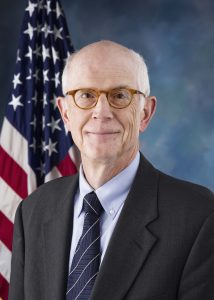
Appointed by the Senate on October 1, 2018 (first term). Reappointed September 25, 2024 (second term).
Bob Joondeph, JD currently serves as Chair of the Social Security Advisory Board and has served as the Executive Director of Disability Rights Oregon for over 30 years, promoting and defending the legal and civil rights of Oregonians with disabilities through legal-based advocacy. Joondeph has represented individuals with disabilities in state and federal courts, agencies and legislatures. Joondeph has served on the Oregon Health Evidence Review Commission, Health Services Commission, Health Fund Board, Mental Health Planning and Management Advisory Council, State Rehabilitation Commission, Governor’s Task Force on Brain Injury, and the Council on Developmental Disabilities. Joondeph is the recipient of the Oregon State Bar Public Service Award, Oregon Disabilities Commission Advocate of the Year Award, Brain Injury Alliance of Oregon Advocacy Award, and the Oregon Civil Rights Leadership Award. Joondeph is a graduate of Case Western Reserve Law School and Brown University.
Jagadeesh Gokhale

Appointed by the Senate on November 19, 2009 (first term). Reappointed October 5, 2015 (second term). Reappointed September 28, 2021 (third term).
Dr. Jagadeesh Gokhale is the Director of Special Projects at the Penn Wharton (“Wharton”) Budget Model. Prior to joining Wharton, Dr. Gokhale was a Senior Fellow at the Cato Institute. An economist by training, Gokhale’s main research fields are macro and public economics with a special focus on the effects of fiscal policy on future generations. Dr. Gokhale has written extensively on policy issues including Social Security and Medicare reform, national saving, private insurance, financial planning, wealth inequality, generational accounting, and public intergenerational transfers; he has testified before Congress several times on these topics. In 2010 Gokhale published Social Security: A Fresh Look at Policy Alternatives, which constructs a different method for determining solvency of the Social Security trust funds. Dr. Gokhale is published in numerous professional journals, as well as newspapers such as the Wall Street Journal, The Financial Times, The Washington Post, and Forbes.
Amy Shuart

Appointed by the House on October 7, 2022.
Amy Shuart has over 15 years of experience in Social Security, identity, and technology policy. Shuart is currently the Vice President, Technology & Innovation at Business Roundtable. She previously was the Head of North America Government Affairs for Onfido, a global digital identity company, where she launched their Washington office. For over a decade, Shuart worked for the Committee on Ways and Means, most recently as the Social Security Subcommittee Staff Director. Shuart started her career as a Presidential Management Fellow at the Social Security Administration in the Office of Retirement Policy and has also worked at the Office of Management and Budget in the Medicare Branch and the White House National Economic Council. Shuart holds a Bachelor of Arts in Political Science and a Bachelors of Arts in Public and Urban Affairs from Virginia Tech, and a Master of Public Affairs from the Lyndon B. Johnson School of Public Affairs at the University of Texas at Austin.
Nancy Altman

Appointed by the House on September 26, 2017 (first term). Reappointed March 1, 2018 (second term). Reappointed June 21, 2024 (third term).
Nancy Altman, JD, has a 50-year background in Social Security and private pensions. She is the current President of Social Security Works and Chair of the Strengthen Social Security Coalition. Altman was on the faculty of Harvard University’s Kennedy School of Government and taught courses on private pensions and Social Security at the Harvard Law School. In 1982, Altman was Alan Greenspan’s assistant in his position as Chair of the bipartisan commission that largely developed the 1983 Social Security amendments. She is the author of The Truth About Social Security, The Battle for Social Security and co-author of Social Security Works! Why Social Security Isn’t Going Broke and How Expanding It Will Help Us All. Altman has an AB from Harvard University and a JD from the University of Pennsylvania Law School.
Former Board Members
Note: Board Chair dates are approximate
Democratic Senate Appointments
Lori Hansen (10/94 – 09/00)
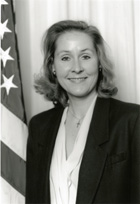
- Appointed August 19, 1994
- Policy Analyst at the National Academy of Social Insurance
- Former Technical Assistant to Social Security Administrator Robert Ball
David Podoff (10/00 – 09/06)
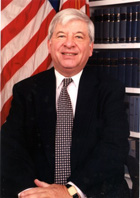
- Appointed October 4, 2000
- Visiting Associate Professor in the Department of Economics and Finance at the Baruch College of the City University of New York
- Former Minority Staff Director and Chief Economist for the Senate Committee on Finance
Marsha Katz (11/06 – 09/12; Acting Chair 2011-12)
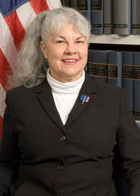
- Appointed November 14, 2006
- Project Director at the University of Montana Rural Institute in Missoula
- Former Vice President of the Association for Community Advocacy in Ann Arbor, Michigan
Bernadette Franks-Ongoy (01/13-09/18)

- Appointed January 24, 2013
- Executive Director of Disability Rights Montana
- Former President of the National Disability Rights Network
Republican Senate Appointments
Carolyn Weaver (10/94 – 09/97)
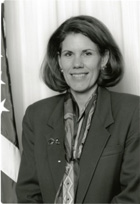
- Appointed September 26, 1994
- Resident Scholar and Director of the Social Security and Pension Project at the American Enterprise Institute
- Former Senior Advisor to the 1983 National Commission on Social Security Reform
Sylvester Schieber (01/98 – 09/09; Chair 2006-09)
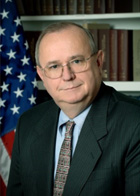
- Appointed January 27, 1998 (first term); Reappointed October 2, 2003 (second term)
- Director of the Research and Information Center at Watson Wyatt Worldwide
- Former Director of Research at the Employee Benefit Research Institute
Democratic House Appointments
Martha Keys (11/94 – 09/05)

- Appointed November 29, 1994 (first term); Reappointed September 30, 1999 (second term)
- Former member of the U.S. House of Representatives representing the 2nd District of Kansas
- Former Special Advisor to the Secretary of Health, Education, and Welfare and Assistant Secretary of Education
Barbara Kennelly (01/06 – 09/17; Chair 2009-11; Chair 2012-14)
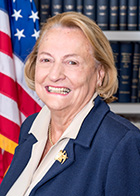
- Appointed January 18, 2006 (first term). Reappointed March 1, 2012 (second term)
- Former President, National Committee to Preserve Social Security and Medicare
- Former member of the U.S. House of Representatives, 1st District of Connecticut
Republican House Appointments
Arthur “Pete” Singleton (11/94 – 10/96)
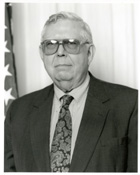
- Appointed November 29, 1994
- Resigned after appointment to Chief of Staff for the Ways and
- Means Committee
- Staff member of the Ways and Means Committee
- Served as a Marine in World War II
Jo Anne Barnhart (03/97 – 11/01)
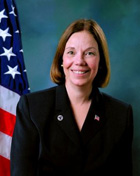
- Appointed March 12, 1997 (first term); Reappointed October 9, 1998 (second term)
- Political and public policy consultant to state and local governments on welfare and social services
- Former Assistant Secretary for Children and Families, Department of Health and Human Services
Dorcas R. Hardy (04/02-09/16)
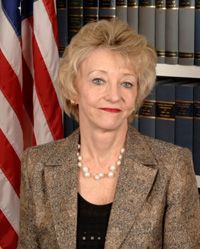
- Appointed April 9, 2002 (first term); reappointed November reappointed September 29, 16, 2004 (second term); 2010 (third term)
- President of D.R. Hardy & Associates
- Former Social Security Administration Commissioner from 1986 to 1989
Kim Hildred (09/16-09/22; Chair 2017-21)
- Appointed by the House on
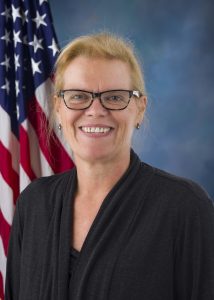 September 27, 2016
September 27, 2016 - President of Hildred Consulting, LLC.
- Former Staff Director of the House Ways and Means Subcommittee on Social Security in the US House of Representatives
Presidential Appointments
Harlan Mathews (01/96 – 10/97; Acting Chair 1996-97)
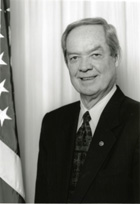
- Appointed during Senate recess January 26, 1996
- Resigned October 1997
- Former U.S. Senator representing Tennessee
- Previously Secretary of the Cabinet for Tennessee Governor Ned McWherter and Tenneessee’s State Treasurer
Gerald Shea (01/96 – 11/97; 10/00 – 09/04)
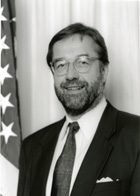
- Appointed during Senate recess January 26, 1996 (first term); Nominated October 11, 2000 and confirmed October 24, 2000 (second term)
- Assistant to the president for Government Affairs at the AFL-CIO
- Serves as a public representative on the Joint Commission on the Accreditation of Health Care Organizations
- Founding Board member of the Foundation for Accountability
William Brooks (01/96 – 09/96)
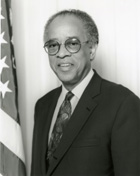
- Appointed during Senate recess January 26, 1996
- Director and Chairman of the Compensation Committee at the United American Healthcare Corporation
- Former Trust Manager at the United Investors Realty Trust
Stanford Ross (09/97 – 09/02; Chair 1997-02)
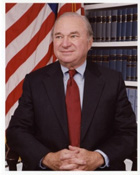
- Nominated September 23, 1997 and confirmed October 30, 1997
- Partner at law firm of Arnold & Porter LLP
- Former Commissioner of Social Security and Public Trustee of the Social Security and Medicare Trust Funds
Mark Weinberger (10/00 – 05/01)
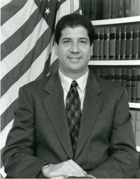
- Nominated October 11, 2000 and confirmed October 24, 2000
- Resigned after appointment to Assistant Secretary of the Treasury for Tax Policy
- Former Director of the U.S. National Tax Practice for Ernst & Young LLP
Hal Daub (01/02 – 09/06; Chair 2002-06)

- Nominated November 15, 2001 and confirmed January 25, 2002
- Former member U.S. House of Representatives representing the 2nd District of Nebraska
- Partner with the law firm Blackwell Sanders Peper Martin
- Former Mayor of Omaha, Nebraska
Bradley Belt (12/03 – 04/04)

- Appointed during Senate recess November 4, 2003 and withdrawn from Senate consideration April 26, 2004
- Resigned after appointment to Executive Director of the Pension Benefit Guarantee Corporation
- Former President of the Washington Capital Group, Inc.
Jeffrey Brown (10/06-09/08)

- Nominated December 14, 2005 and confirmed December 8, 2006
- Professor in the Department of Finance at the University of Illinois at Urbana-Champaign
- Former Assistant Professor of Public Policy at Harvard University’s John F. Kennedy School of Government
Dana Bilyeu (12/06 – 09/10)
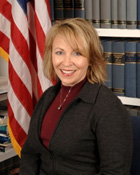
- Nominated December 5, 2006 and confirmed December 8, 2006
- Executive Officer of the Public Employees’ Retirement System of Nevada
- Serves on the Public Employee Advisory Board for the International Foundation of Employee Benefit Plans
Mark Warshawsky (12/06 – 09/12)

- Nominated December 5, 2006 and confirmed December 8, 2006
- Director of Retirement Research at Watson Wyatt Worldwide
- Member, Advisory Board of the Pension Research Council of the Wharton School
Alan L. Cohen (09/14 – 09/16)

- Nominated September 30, 2013 and confirmed September 8, 2014
- Previously served as Senior Budget Advisor and Chief Counselor for Social Security for the U.S. Senate Committee on Finance from 2001-2012
Lanhee Chen (09/14 – 09/18)
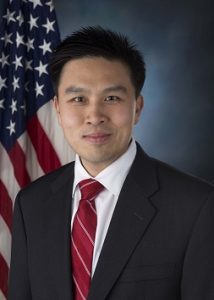
- Nominated on September 30, 2013 and confirmed on September 8, 2014
- Research Fellow at the Hoover Institution
- Director of Domestic Policy Studies and Lecturer in the Public Policy Program at Stanford University
- Lecturer in Law at Stanford Law School
Henry J. Aaron (09/14 – 09/20; Chair 2014-17)
- Nomin
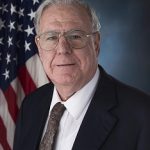 ated on January 6, 2014 and confirmed on September 8, 2014
ated on January 6, 2014 and confirmed on September 8, 2014 - Bruce and Virginia Mac-Laury Chair and Senior Fellow in the Economic Studies Program at the Brookings Institution
- Previously taught at the University of Maryland and at Harvard University.
- Vice-Chair of the District of Columbia Health Benefits Exchange, a Member of the Institute of Medicine, the American Academy of Arts and Sciences, the Stanford Institute for Economic Policy Research Advisory Board, and the Board of Directors of the Center on Budget and Policy Priorities.
- A founding member, Vice-President, and Board Chair of the National Academy of Social Insurance.
Social Security Advisory Board announces expert panel to review Social Security’s information technology modernization efforts
The Social Security Advisory Board has appointed an independent, expert panel to review Social Security’s efforts to modernize its information technology (IT), which is essential to delivering effective service to the public. The Information Technology Systems Expert Panel (“Panel”) will utilize their expertise and experience to examine progress and key initiatives of Social Security’s IT Modernization Plan, including how systems processes are developed, modified and used by the agency. The Panel will also review the success of the systems modernization from the enduser’s perspective, including those inside and outside the agency. The Panel will meet beginning in the fall of 2019 and will report its findings to the Board in early fiscal year 2021.
The 2019-2020 Panel is chaired by Alan Balutis, PhD, a distinguished fellow and senior director of North American Public Sector Cisco Systems’ Business Solutions Group, the firm’s global strategy and consulting arm. Before joining the network firm, Balutis served more than 30 years in public service and industry leadership roles. Balutis is a founding member of the Federal Chief Information Officers (CIO) Council. As a founding member, he led its strategic planning and outreach committees, helped create the council’s e-government committee and served as its first chair. At the Department of Commerce, Balutis headed the management and budget office for over a decade and was the department’s first CIO. Balutis won the Federal Computer Week FED 100 seven times and is a member of the Government Computer News as well as the Federal Computer Week halls of fame. He is also a fellow of the National Academy of Public Administration (NAPA).
The other Panel members are:
Dan Chenok, executive director of the IBM Center for the Business of Government, is a CIO Strategic Advisors to Government Executives (SAGE) with the Partnership for Public Service, fellow of NAPA, and chair of the Cybersecurity Subcommittee of the Department of Homeland Security’s (DHS) Data Privacy and Integrity Advisory Committee. Chenok is also a member of the George Washington University Center for Cyber and Homeland Security Board of Directors, American University IT Executive Council, and serves as co-chair of the Senior Executives Association Community of Change for Governance Innovation. Chenok served as the Office of Management and Budget’s branch chief for information policy and technology with oversight of federal information and IT policy, including electronic government, computer security, privacy and IT budgeting. Chenok served on President Obama’s transition team for the Technology, Innovation and Government Reform group and won numerous honors and awards, including a 2010 Federal 100 winner for work on the presidential transition, and the 2016 Eagle Award for Industry Executive of the Year.
Nani A. Coloretti is the senior vice president for financial and business strategy at the Urban Institute. Coloretti served the Obama administration for almost eight years, most recently as deputy secretary of the US Department of Housing and Urban Development (HUD). As the second-most senior official at HUD, Coloretti managed the department’s day-to-day operations and cross-cutting program initiatives, including a $45 billion annual budget and approximately 8,000 employees. Coloretti also served as the assistant secretary for management at the Department of the Treasury. Coloretti is a chief operating officer SAGE at the Partnership for Public Service, a NAPA fellow, a director on the board of Bank of the West and serves on the advisory board for Access Democracy.
Renato (“Renny”) A. DiPentima, PhD serves on the Boards of Directors of Cap Gemini Government Solutions, Amida Technology Solutions, iNovex Information Systems, and Gunnison Consulting Group, as well as the Advisory Board at Blue Delta Capital Partners. DiPentima also served as a board director for Brocade Communication Systems.
DiPentima held several senior management positions in the federal government, including serving as Social Security Administration’s deputy commissioner and as the agency’s CIO.
Martha Dorris has over thirty years of federal government experience in information technology acquisition roles, ranging from technical and program management to customer and citizen experience. Dorris was the deputy associate administrator in the General Services Administration’s (GSA) Office of Citizen Services and Innovative Technologies (now the Technology Transformation Service) for the majority of 34 years focused on improving the services government delivers to citizens. Dorris has been active in the information technology community worldwide. Dorris served as the chair of the American Council for Technology and fulfilled numerous positions with the International Council for IT in Government Administration. Dorris was recently elected to the World Information Technology and Services Alliance Board of Directors. Dorris is one of 21 directors elected for the 2018-2020 term and the only representative from the United States.
William (Bill) D. Eggers is the executive director of Deloitte’s Center for Government Insights where Eggers is responsible for the firm’s public sector thought leadership. Eggers’ newest book is Delivering on Digital: The Innovators and Technologies that are Transforming Government (Deloitte Insights, 2016). Eggers has authored eight other books, including The Solution Revolution: How Government, Business, and Social Enterprises are Teaming up to Solve Society’s Biggest Problems (Harvard Business Review Press 2013) which The Wall Street Journal calls pulsating with new ideas about civic and business and philanthropic engagement,” and was named to ten best books of the year lists.
Mark Alan Forman was the first administrator at the Office of E-Government and Information Technology. Forman was the first person in the federal government to fulfill responsibilities normally associated with a corporate CIO. Forman is currently vice president, digital government for Unisys Federal Systems. Forman’s prior experience includes senior positions at KPMG, IBM, and the US Senate Committee on Governmental Affairs. Forman has over 30 years of experience in successful government modernization initiatives, including turn-around of poor-performing major transformation initiatives, federal enterprise architecture, IT governance, cybersecurity, acquisition, and IT strategy.
Greg Giddens, partner with Potomac Ridge Consulting, is a chief acquisition officer SAGE with the Partnership for Public Service, a fellow of NAPA, and a member of National Contract Management Association Board of Advisors. Giddens previously served as chief acquisition officer for Veterans Affairs (VA) and as the principal executive director for VA’s Office of Acquisition, Logistics, and Construction. Giddens has over 36 years of federal service and prior to the VA, Giddens served in DHS and the Department of Defense where Giddens led large, transformational programs. Giddens has twice received the FED 100 award and also received the Presidential Rank Award for Distinguished Executives.
March 27, 2017, 8:00am-4:30 pm
20 F Street NW Conference Center
With remarks from the Honorable Sam Johnson, Chairman of the House Committee on Ways and Means, Social Security Subcommittee
Summary: The Social Security Advisory Board hosted a public forum to discuss the Social Security Administration’s representative payee program. More than six million payees manage $80 billion in Social Security and Supplemental Security Income benefits for more than 3.5 million adults and 4 million children determined to be incapable of managing their benefits. Projections indicate that the number of people needing assistance will increase dramatically in the coming decades as the population ages. The day’s discussion included the process of determining capacity, best practices, collaborative efforts and new approaches from the front lines, necessary oversight, program evaluation and preparing for the future.
Agenda
Bios and Presentations
0.2 FINAL Panelist Bios-All-Rep Payee Forum 2017.pdf
0.3 Chairman Johnson Bio.pdf
1 Weathers RepPayeePresentation03162017.pdf
3 Sanzenbacher Presentation to Advisory Board 27MAR2017.pdf
4 Applebaum Informing SSA’s Capability Determination Process SSAB.pdf
5 Horn Representative Payee.pdf
7 Boyko Minnesota presentation.pdf
8 Decker SSAB NDRN March 2017.pdf
9 Hurme WINGS-SSA Collaboration presentation.pdf
10 Wiener Slides.pdf
Forum 2017 Charts
The following chart collection features data on Social Security’s representative payee program. The Social Security Administration (SSA) assigns a representative payee when it determines that a beneficiary is unable to manager his or her own funds. SSA considers legal evidence, medical evidence, and/or statements from relatives, friends, and other people familiar with the beneficiary to make the determination that a representative payee is needed. Payees are most commonly assigned to manage benefits for children and beneficiaries with disabilities (both from the Disability Insurance and Supplemental Security Income programs). For more background on the program, see the Board’s past work on the topic.
For simplicity, beneficiaries of the Old Age, Survivors, and Disability Insurance (OASDI) program and recipients of the Supplemental Security Income program (SSI) will be collectively referred to as “Social Security beneficiaries.”
In the charts below, hover the mouse over the content to view individual data points. The charts may take several seconds to load.
Nearly 8 million Social Security beneficiaries have a representative payee
The majority of beneficiaries with a payee (4.78 million) come from the Old Age, Survivors, and Disability Insurance (OASDI) program. This includes primary workers, but also spouses and children who may receive benefits when a primary worker retires, becomes disabled, or dies. About 2.5 million Supplemental Security Income (SSI) recipients have a payee, as do about 630,000 recipients of both SSI and OASDI benefits. Use the selector in the chart below to toggle between adult and child beneficiaries.
Representative payees are most common in the SSI program
While OASDI beneficiaries make up the largest number of participants with a payee, payees are much more common in the SSI program. SSI is a means-tested cash transfer program serving the blind, disabled, and elderly. About 45% of the 8.3 million SSI recipients have a payee, compared to just 8.4% of OASDI beneficiaries. Among adults, 30% of SSI recipients have a payee, compared to 3.3% of OASDI beneficiaries. Use the selector in the chart below to toggle between adult and child beneficiaries.
Among OASDI adult beneficiaries, those with disabilities are most likely to have a payee
Retired workers have relatively low rates of payee assignment at just 1.3%. Just over 10% of workers with disabilities have a payee, while nearly 75% of adult children with disabilities have a payee.
Payee assignment rates are highest among children, much lower among the elderly
Nearly every child receiving some sort of Social Security program benefit (SSI, OASDI, or both) has a payee. While rates of payee assignment tend to decrease with age, the number of beneficiaries with a payee does not, as adults are more likely to join the Social Security programs with age.
65% of beneficiaries with a payee are children or elderly
When considering the age distribution beneficiaries with a payee, it becomes clearer that beneficiaries aged 65 or older do indeed collectively have a large need for payees. While the rate of elderly beneficiaries with a payee is low, they do make up the second largest age category in terms of number of payees representing them, since there many more elderly Social Security beneficiaries compared to younger adults.
Most representative payees are related to the beneficiary
Institutional payees are relatively uncommon among beneficiaries with a payee. Most adult recipients deemed in need have a parent, child, spouse, or other relative serving as their payee. Among children, parents are by far the most common type of payee.
SSAB Reports
For Representative Payee Reports, click here.
Readings
BACKGROUND READINGS: THE REPRESENTATIVE PAYEE PROGRAM
Readings Relevant to Forum Panels
Panel 1: Sounding the Alarm
Social Security Advisory Board: “Representative Payees: A Call to Action” (March 2016)
Panel 2: Identifying Who Needs a Representative Payee
Panel 3: Perspectives from the Front Lines (Payee Websites)
National Association of Organizational Representative Payees
Panel 4: Monitoring Representative Payee Performance
Panel 5: The Way Forward
Recent Reports from Office of the Inspector General, Social Security Administration
Testimony from Congressional Hearing on Representative Payees, February 7, 2017
Gale Stallworth Stone, Acting Inspector General, Social Security Administration
Government Accountability Office Reports
Elder Justice: More Federal Coordination and Public Awareness Needed (July 2013)